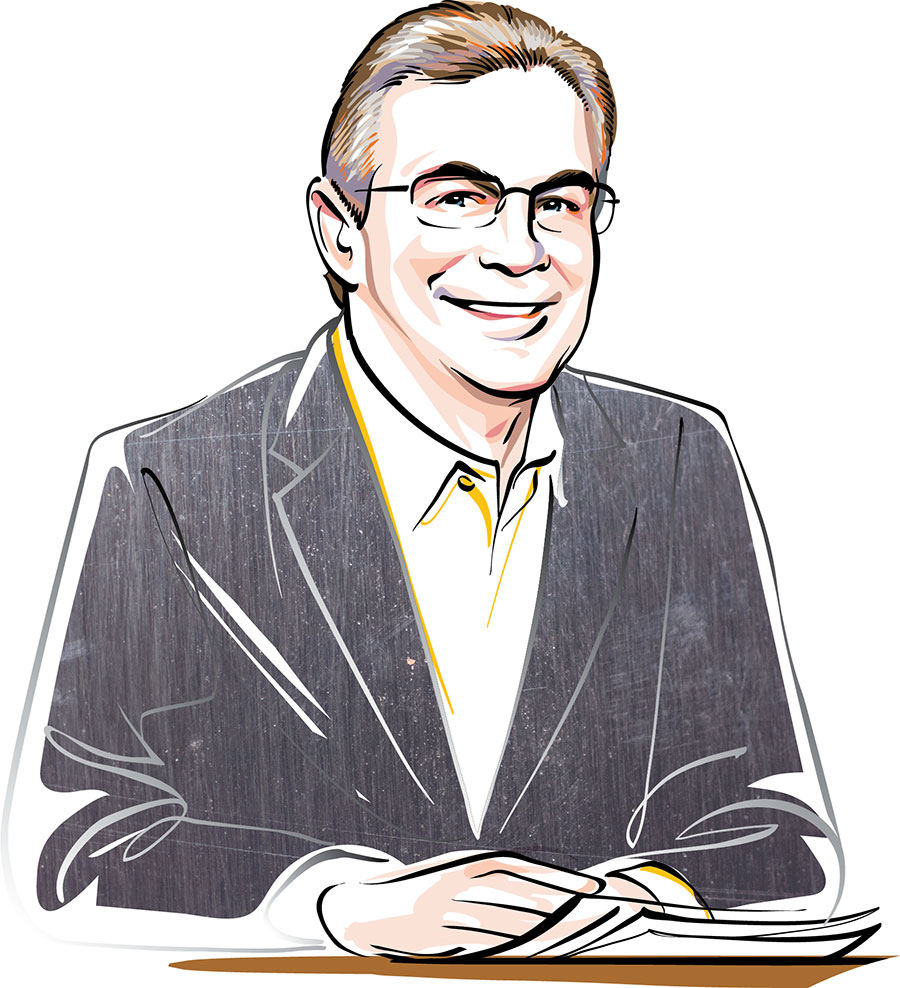
The biggest risk I took was in the late ’80s. Jim de Castro hired me to run WLUP-AM and FM. Next thing I knew, I was standing in front of Steve Dahl, Garry Meier, Jonathon Brandmeier, Kevin Matthews, and the whole Loop family, being introduced as the new GM. Radio prime time then was in the morning or evening, but when I saw the abundance of talent, I said, “Why can’t we have prime time all the time?” We started putting the personalities on one channel and playing music on the other. And we caught lightning in a bottle for a while. Johnny was a master of letting the audience be his show, Steve and Garry would head down runways you didn’t see coming, and Kevin just had a circus going on in his head. Every day, somebody’s show was part of the water cooler talk.
I communicated with Howard Stern for almost two years before we brought him to Chicago in the early ’90s. But after our owner at Evergreen Media got a couple of FCC fines, he said we had to take him off the air. I was the mouthpiece who hired and fired him. We’re good now, but it got so ugly that he wished me AIDS and cancer and death. Years later, I got on an elevator with Robin Quivers and Al Roker, who was a friend of mine, and when he introduced us, she went, “Oh.”
Ego creates war. Ego ruins relationships. Ego can make or crush deals.
My former ABC-7 boss Dennis Swanson is the one who told me, “Kid, it’s not always what you do right that helps you win. It’s what the other guys do wrong.” When I was still at the Loop, he called me and said, “Some idiot put Jerry Springer on the late news at NBC and everyone quit.” Next thing you know, I’m at NBC.
After the Loop’s parent went public, I saw what my shares were worth, and they went up a lot more after that. Then the market crashed and I had some things happen with a bad adviser, and that big number dissipated. I was wealthier than I ever thought I’d be, then it was gone. It’s different than if you never had it.
Someone recently told me the quickest way to lose a friend is to lend them money. If someone’s in need, I run into it — I’ve always loved the Robin Hood fable. But I’ve been burned. People have trouble repaying, or they choose not to: “He doesn’t need it.” What people don’t realize is it’s not about the money, it’s about the betrayal.
During high school at Fenwick, I competed at a high level in diving. I never made an Olympic team, which was my goal, but diving paid for college at the University of Wisconsin, and I got to be cocaptain of a Big Ten team. I competed into my 40s, but I’ve had five back surgeries, so I had to give it up. Plus, my daughter said, “No more Speedo, Dad.”
In my early 50s, it snuck up on me — different forms of panic and anxiety. I couldn’t sleep and I lost a bunch of weight. It probably got triggered by big layoffs at GE and NBC, a lot of which I had to preside over. I tried a few antidepressants, but they just made me feel worse. Finally, a doctor gave me medication that knocked me out for a couple days, then he weaned me so I got my circadian rhythm back. I learned a little bit about my engine at that age: You can’t come in hot every night, expect to flip the switch off, get six or seven hours’ great sleep, then flip it right back on.
I was at Walter Payton’s funeral. John Madden spoke and said, “There are three types of people in the world: people who make things happen, people who watch things happen, and people who don’t know what’s happening. And Walter made things happen.” I always try to be in the “make things happen” bucket.




Comments are closed.